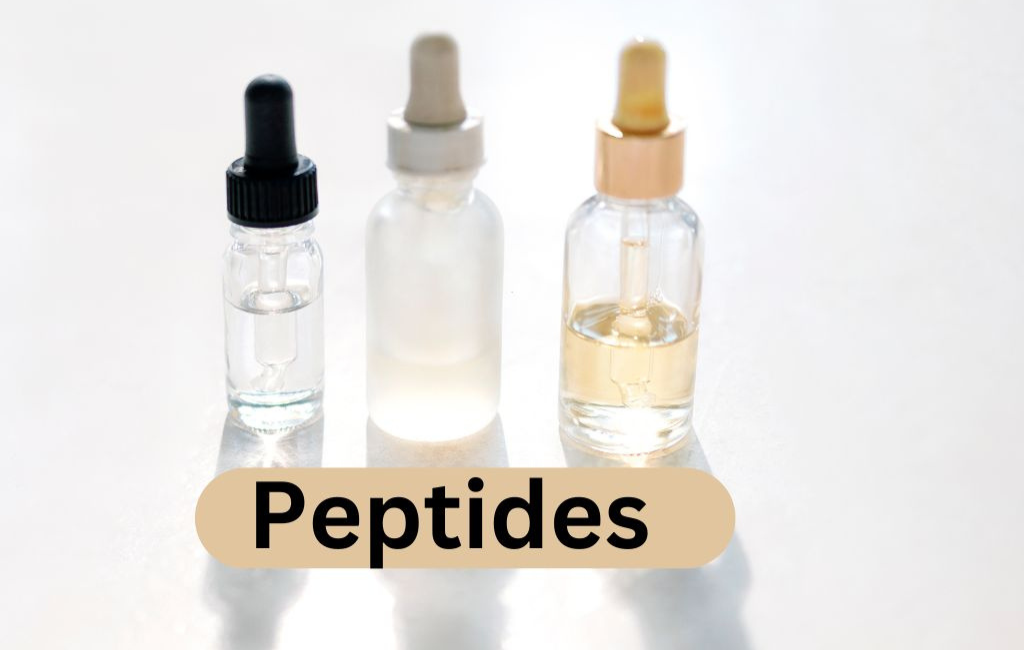Choosing Effective Peptides Supplements
Peptides are short chains of amino acids, which are the building blocks of proteins. They play a significant role in various biological processes, including hormone production, immune function, and cell signaling. In recent years, peptides have gained popularity as supplements due to their potential health benefits, such as enhancing muscle growth, improving skin health, and supporting weight loss.
The Science Behind Peptides
Peptides function by interacting with specific receptors in the body, triggering various physiological responses. For instance, some peptides can stimulate the release of growth hormone, which is crucial for muscle development and repair. Others may have antioxidant properties, helping to protect cells from damage caused by free radicals.
Research has shown that certain peptides can improve skin elasticity and hydration, making them popular in anti-aging products. Additionally, some peptides have been studied for their potential to aid in weight management by influencing appetite and metabolism.
Types of Peptide Supplements
There are several types of peptide supplements available, each with unique benefits. Some of the most common include:
- Collagen Peptides: Known for their role in promoting skin health, joint function, and bone strength.
- Creatine Peptides: Often used by athletes to enhance muscle performance and recovery.
- Glutathione Peptides: Valued for their antioxidant properties and potential to support immune health.
- Peptide Hormones: Such as growth hormone-releasing peptides, which may aid in muscle growth and fat loss.
Factors Influencing Peptide Supplement Choice
When selecting a peptide supplement, several factors can influence your decision. Understanding these can help you make an informed choice that aligns with your health goals.
Quality and Purity
One of the most important aspects to look for in a peptide supplement is its quality and purity. High-quality supplements are typically manufactured in facilities that adhere to Good Manufacturing Practices (GMP) and undergo third-party testing to verify their contents. This ensures that the product is free from contaminants and contains the stated amount of active ingredients.
Formulation and Delivery Method
Peptide supplements come in various forms, including powders, capsules, and topical creams. The choice of formulation can affect the supplement’s absorption and effectiveness. For instance, oral supplements may be more convenient, but some peptides are better absorbed through the skin or via injection.
Specific Health Goals
Your specific health goals will also play a role in determining the most suitable peptide supplement. For example, if your primary aim is to improve skin health, collagen peptides might be the best option. On the other hand, if you’re looking to enhance athletic performance, creatine peptides could be more appropriate.
Case Studies and Research
Several studies have highlighted the potential benefits of peptide supplements. For instance, a study published in the Journal of Clinical Endocrinology & Metabolism found that growth hormone-releasing peptides can significantly increase muscle mass and reduce body fat in healthy adults. Another study in the Journal of Cosmetic Dermatology demonstrated that collagen peptides improved skin elasticity and hydration in women aged 35-55.
These findings suggest that peptide supplements can offer tangible benefits, but it’s important to approach them with realistic expectations. While they can support various aspects of health, they are not a substitute for a balanced diet and regular exercise.
Potential Side Effects and Safety
While peptide supplements are generally considered safe, they can cause side effects in some individuals. Common side effects may include digestive issues, allergic reactions, or skin irritation, particularly with topical applications. It’s advisable to consult with a healthcare professional before starting any new supplement regimen, especially if you have underlying health conditions or are taking other medications.
Conclusion
Peptide supplements offer a promising avenue for enhancing health and wellness, with potential benefits ranging from improved skin health to increased muscle mass. By understanding the different types of peptides, their mechanisms of action, and the factors influencing their effectiveness, you can make an informed decision about which supplement best aligns with your health goals.
As with any supplement, quality and safety should be top priorities. Opt for products that are manufactured in reputable facilities and have undergone rigorous testing. By doing so, you can maximize the potential benefits of peptide supplements while minimizing the risk of adverse effects.
